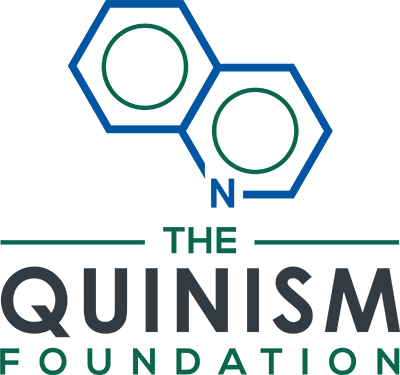The Quinism Foundation Encourages Those Injured by Hydroxychloroquine and Related Quinoline Antimalarial Drugs to File Timely Claims for Government Compensation
The Foundation has Written to Newly Confirmed Secretary of Health and Human Services, Xavier Becerra, Encouraging Liberal Consideration of Claims under the Countermeasures Injury Compensation Program
WHITE RIVER JUNCTION, VT. (PRWEB) MARCH 19, 2021
The Quinism Foundation has sent correspondence to Xavier Becerra, the newly confirmed Secretary of the Department of Health and Human Services (HHS), encouraging liberal consideration of claims under the Countermeasures Injury Compensation Program (CICP) for certain injuries or death caused by use of hydroxychloroquine, chloroquine, and related antimalarial quinoline drugs in the COVID-19 pandemic.
Exactly one year ago, on March 19, 2020, the former President made public comments suggesting the imminent regulatory approval of these drugs for use against COVID-19. [1] Hydroxychloroquine and chloroquine were subsequently approved by the U.S. Food and Drug Administration (FDA) under an Emergency Use Authorization (EUA). These EUAs were later revoked by FDA for concerns of safety and lack of efficacy. [2]
“We believe that beginning on this date [March 19, 2020], the public reasonably could have believed ‘in good faith’ that administration or use of antimalarial drugs of the quinoline class against COVID-19 was pursuant to the administration’s appropriate emergency authorities,” wrote Remington Nevin, MD, MPH, DrPH, executive and medical director of The Quinism Foundation. As noted by Dr. Nevin, administration or use of such drugs “in good faith” would potentially meet criteria for their being considered a covered countermeasure under the law, and subject to potential compensation under the CICP.
“Accordingly, we are asking HHS to consider as a ‘covered countermeasure’ any administration or use of hydroxychloroquine, chloroquine, and other related antimalarial quinolines, including mefloquine, tafenoquine, or quinine, from any source, and of any formulation, from the time of the former President’s initial public comments on this matter, March 19, 2020, until the date of the withdrawal of the FDA EUAs.”
“Quinoline drugs are idiosyncratic neurotoxicants, and in susceptible individuals induce a medical disorder termed chronic quinoline encephalopathy marked by a range of potentially irreversible neuropsychiatric effects, whose signs and symptoms reflect the known localization of neurotoxic injury from these drugs,” wrote Dr. Nevin. [3,4] Although purely psychiatric conditions, even if serious, are not covered by the CICP, Dr. Nevin noted in his letter that quinoline encephalopathy causes actual physical “biochemical alterations leading to physical changes and serious functional abnormalities at the cellular or tissue level” within the central nervous system, as required for eligibility under the program, “and thus when such encephalopathy is associated with ‘a significant loss of function or disability’, this meets the definition of ‘serious injury’ necessary to be considered a ‘covered injury’ under the CICP.”
In his letter, Dr. Nevin therefore asked HHS to “recognize as a ‘covered injury’ any sign or symptom of encephalopathy caused by use of antimalarial quinoline drugs, associated with significant loss of function or disability.
Dr. Nevin noted that “compelling, reliable, valid, medical and scientific evidence exists to establish a rebuttable presumption that certain illnesses, disabilities, injuries and conditions consistent with quinoline encephalopathy were caused by administration or use of these drugs. These include suicide, attempted suicide, and various mental, neurologic, and vestibular disorders.”
Dr. Nevin noted in his letter that although “it might be argued by HHS that eligibility under the CICP is strictly limited only to those administered these drugs in hospitalized settings under the terms of these drugs’ respective [EUAs] approved March 28, 2020, and excludes any use outside of this, we believe such an interpretation would be inconsistent with the ‘good faith’ clauses” of the law.
Accordingly, Dr. Nevin encouraged those who took hydroxychloroquine, chloroquine, or a related quinoline antimalarial drug in “good faith” for use against COVID-19, and subsequently experienced neuropsychiatric adverse effects resulting in significant loss of function or disability, to file an appropriate claim with the CICP.
Dr. Nevin emphasized that such claims can only be filed in writing, by completing a “Countermeasures Injury Compensation Program Request for Benefits Form,” and must submitted no later than one year following use of the drug. Dr. Nevin noted that more information on how to file a claim could be found at https://www.hrsa.gov/cicp/filing-benefits, or by visiting the website of The Quinism Foundation, at https://quinism.org.
About The Quinism Foundation
The Quinism Foundation, founded in January 2018, in White River Junction, Vermont, promotes and supports education and research on quinism, the family of medical disorders caused by exposure to quinoline drugs, including mefloquine, tafenoquine, and chloroquine.
Dr. Nevin is board-certified occupational medicine and preventive medicine physician and former U.S. Army medical officer and epidemiologist. He is author of more than 30 scientific publications on malaria and the quinoline antimalarials.
References
1. CNN. Trump says FDA will fast-track treatments for novel coronavirus, but there are still months of research ahead. March 19, 2020. Available at: https://www.cnn.com/2020/03/19/politics/trump-fda-anti-viral-treatments-coronavirus/index.html.
2. U.S. Food and Drug Administration. Coronavirus (COVID-19) Update: FDA Revokes Emergency Use Authorization for Chloroquine and Hydroxychloroquine. June 15, 2020. Available at: https://www.fda.gov/news-events/press-announcements/coronavirus-covid-19-update-fda-revokes-emergency-use-authorization-chloroquine-and.
3. Nevin RL. Neuropsychiatric Quinism: Chronic Encephalopathy Caused by Poisoning by Mefloquine and Related Quinoline Drugs. In: Ritchie EC, Llorente MD, eds. Veteran Psychiatry in the US. Cham: Springer International Publishing; 2019:315-331. doi:10.1007/978-3-030-05384-0
4. Nevin RL. Idiosyncratic quinoline central nervous system toxicity: Historical insights into the chronic neurological sequelae of mefloquine. International journal for parasitology Drugs and drug resistance. 2014;4(2):118-125. doi:10.1016/j.ijpddr.2014.03.0

